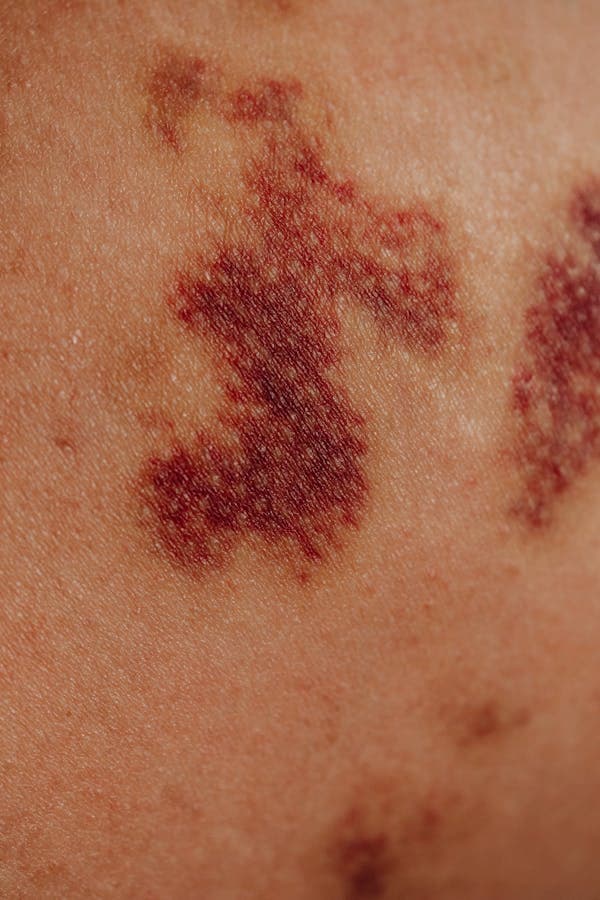Recent research has suggested that stem cells could provide promising results in rheumatoid vasculitis treatment. Rheumatoid vasculitis is a type of vasculitis of rheumatic origin. The term “vasculitis” refers to the inflammation of the blood vessels, often resulting in thickening, weakening, narrowing, and scarring. This can further restrict the blood flow through the affected vessels, ultimately leading to organ damage.
This article is aimed at evaluating the efficacy of stem cell therapy in managing rheumatoid vasculitis.
What Is Rheumatoid Vasculitis?
Rheumatoid vasculitis is a form of vasculitis associated with rheumatoid arthritis. It is a rare complication of severe, longstanding rheumatoid arthritis.
While rheumatoid arthritis affects the joints, rheumatoid vasculitis affects the blood vessels, resulting in inflammation. It is estimated that rheumatoid vasculitis affects nearly 2 to 5% of patients with arthritis. It affects the arteries and veins carrying blood to the nerves, skin, and internal organs, typically manifesting as peripheral vascular lesions, which are usually localized.

Although the exact cause of rheumatoid vasculitis is not known, it is believed that autoimmunity associated with rheumatoid arthritis contributes to the development and progression of this condition.
Causes of Rheumatoid Vasculitis
Rheumatoid vasculitis usually affects people having severe rheumatoid disease for at least 10 years or longer. Rheumatoid disease is an autoimmune condition that occurs when the immune cells attack the body’s own tissues because it identifies them as a ‘foreign’ invader.
Evidence linking rheumatoid vasculitis to immunological dysfunctions includes:
- Increase in the levels of RA factor
- The presence of proteins called immune complexes in the blood
- Increase in the levels of pro-inflammatory markers
- The appearance of inflammation in the blood vessels showing immune cells within their walls.
In addition, the prevalence of rheumatoid arthritis and vasculitis symptoms is also higher in people with enlarged spleen and chronic leukopenia (low white blood cell count) caused by a condition called Felty’s Syndrome.
Research suggests that the prevalence of rheumatoid vasculitis is comparatively higher in patients with rheumatoid arthritis who smoke compared to those who do not.
Get a free online consultation
Contact us to learn about the expected results of the treatment, its cost and duration.

Medical Advisor, Swiss Medica doctor
Symptoms of Rheumatoid Vasculitis
The symptoms of rheumatoid vasculitis depend on the location of the blood vessels affected. Some common rheumatoid arthritis and vasculitis symptoms affecting the blood vessels in the skin include:
- Appearance of small pits or sores on the fingertips
- Pain and redness around the nails
- Redness of the skin of the legs
- Painful rash on the hands and legs
- Formation of ulcers on this skin
- Recurrent skin infections
The symptoms of rheumatoid vasculitis affecting the nerves include:
- Loss of sensation
- Numbness
- Tingling
- Weakness or loss of motor functions of the hands and feet
In severe cases, large arteries may be affected, leading to the complete absence of blood supply to the tissues of vital organs. This state often results in infarction or gangrene in the fingers and toes.
Diagnosis Of Rheumatoid Vasculitis
The rheumatoid vasculitis diagnosis is suspected when a patient with rheumatoid arthritis presents with symptoms of inflammation in the blood vessels of the skin or any internal organs.
In patients who have both rheumatoid vasculitis with rheumatoid arthritis, the laboratory test results that are commonly observed are elevation in the erythrocyte sedimentation rate and pro-inflammatory markers such as C-reactive protein. As a rule, these reflect a generalized state of inflammation in the body, along with an extremely elevated level of rheumatoid factor.
The presence of hypocomplementemia, atypical ANCAs (anti-neutrophil cytoplasmic antibodies), and ANAs (anti-nuclear antibodies) are other common laboratory findings associated with rheumatoid vasculitis.
What Is Stem Cell Therapy, and How Can It Help Rheumatoid Vasculitis Patients
Rheumatoid vasculitis treatment with stem cells is regarded as a promising avenue for the management of this condition.
Stem cell therapy is a regenerative medicine technique that involves collecting and reintroducing stem cells into the patient’s body, either from a donor or the patient themselves.
Stem cells are undifferentiated cells that possess the ability to differentiate and transform into different cell types in the body. These cells help repair damaged tissues of the blood vessels and regulate the immune system, thus correcting the autoimmune response associated with rheumatoid vasculitis.

The intravenous administration of MSCs (mesenchymal stem cells) can reduce inflammation and slow down or inhibit disease pathogenesis in patients with vasculitis and rheumatoid arthritis, providing an effective treatment option for patients with this condition.
Indications and Contraindications
Stem cell therapy is indicated when there is damage to the blood vessels as a result of the autoimmune reaction of the body in patients with vasculitis arthritis.
The injected mesenchymal stem cells can stimulate tissue healing and regeneration. These cells also lower inflammation in the blood vessels by secreting anti-inflammatory molecules and modifying the response of the immune system. This is expected to inhibit or slow down the progression of blood vessel damage.
Stem cell therapy is indicated in the management of symptoms of vasculitis affecting the skin, brain, nerves, and internal organs. It might help relieve neurological symptoms caused by cerebral rheumatoid vasculitis and improve the patient’s recovery.
This treatment is also indicated in the management of renal vasculitis, where kidney function has been impaired due to inflammation of the blood vessels in these organs.
However, stem cell therapy may be contraindicated or fail to show the desired results in patients with late and advanced stages of retinal vasculitis.
Rheumatoid Vasculitis Stem Cells Treatment Program in Swiss Medica Clinic
Patients diagnosed with rheumatoid arthritis vasculitis can consider stem cell treatment to improve their prognosis.
The regenerative potential of stem cells, in combination with their anti-inflammatory properties, can support the healing of the blood vessels and restore the functions of the organs affected due to the loss of efficient blood supply.
Get a free online consultation
Contact us to learn about the expected results of the treatment, its cost and duration.

Medical Advisor, Swiss Medica doctor
The Advantages of Our Treatment System
Free Personalized Consultation
Patients with cerebral rheumatoid vasculitis can have a free online consultation with experienced doctors to find out if this therapy is indicated in their specific case, and to learn more about the benefits of our rheumatoid vasculitis stem cell treatment program.
Comprehensive Support
We offer support throughout the treatment process, including travel, accommodation, and medical guidance, to reduce stress and uncertainty.
Expert Care
We conduct thorough examinations before treatment and closely monitor patients after to ensure the best outcomes and safety.
Quality Control
At Swiss Medica, we exclusively use adult multipotent mesenchymal stromal cells for rheumatoid vasculitis treatment to ensure safety and avoid ethical concerns. Our focus on quality control means that we meticulously check every stem cell product multiple times before it is used in a patient’s treatment.
Unique Clinic Experience
Swiss Medica’s clinic is equipped with the latest medical facilities and staffed by doctors and nurses around the clock. This sets us apart from many competitors who operate in hotels or offices.
Complimentary Treatments to Enhance Therapy
In our clinic, we enhance the effectiveness of stem cell treatment by incorporating additional therapies such as IMR, secretome therapy, and macrophage therapy.
This can help improve the symptoms of systemic rheumatoid vasculitis and reduce the risk of potential complications such as gangrene or organ failure.
Cost Of Stem Cell Therapy For Rheumatoid Vasculitis
The cost of stem cell therapy for rheumatoid vasculitis depends on the extent of damage to the blood vessels and end organs, such as the skin, brain, nerves, kidneys, or retina, usually ranging from €7,000 to €25,000.
Patients can contact our stem cell therapy experts at the Swiss Medica Clinic to learn more about the indications, contraindications, and cost of stem cell therapy for rheumatoid vasculitis.
Contact us
Contact us to learn about the expected results of the treatment, its cost and duration.

Medical Advisor, Swiss Medica doctor
List of References:
Cojocaru, M., Cohocaru, I. M., & Chico, B. (2015). New insight into the rheumatoid vasculitis. Romanian journal of internal medicine = Revue roumaine de medecine interne, 53(2), 128–132. https://doi.org/10.1515/rjim-2015-0017
Leung, P. S. C., Shuai, Z., Liu, B., Shu, S. A., & Sun, L. (2016). Stem Cell Therapy in the Treatment of Rheumatic Diseases and Application in the Treatment of Systemic Lupus Erythematosus. Next-Generation Therapies and Technologies for Immune-Mediated Inflammatory Diseases, 167–198. https://doi.org/10.1007/978-3-319-42252-7_9
Chang K, Yang SM, Kim SH, Han KH, Park SJ, Shin JI. Smoking and rheumatoid arthritis. Int J Mol Sci. 2014 Dec 3;15(12):22279-95. doi: 10.3390/ijms151222279. PMID: 25479074; PMCID: PMC4284707.
Statkute, L., Oyama, Y., Barr, W. G., Sufit, R., Ho, S., Verda, L., Loh, Y., Yaung, K., Quigley, K., & Burt, R. K. (2008). Autologous non-myeloablative haematopoietic stem cell transplantation for refractory systemic vasculitis. Annals of the rheumatic diseases, 67(7), 991–997. https://doi.org/10.1136/ard.2007.070227
Gregorini, M., Maccario, R., Avanzini, M. A., Corradetti, V., Moretta, A., Libetta, C., Esposito, P., Bosio, F., Dal Canton, A., & Rampino, T. (2013). Antineutrophil cytoplasmic antibody-associated renal vasculitis treated with autologous mesenchymal stromal cells: evaluation of the contribution of immune-mediated mechanisms. Mayo Clinic proceedings, 88(10), 1174–1179. https://doi.org/10.1016/j.mayocp.2013.06.021
Davatchi, F., Nikbin, B., Shams, H., Sadeghi Abdollahi, B., Mohyeddin, M., & Shahram, F. (2013). Mesenchymal stem cell therapy unable to rescue the vision from advanced Behcet’s disease retinal vasculitis: report of three patients. International journal of rheumatic diseases, 16(2), 139–147. https://doi.org/10.1111/1756-185X.12068
Daikeler, T., Kötter, I., Bocelli Tyndall, C., Apperley, J., Attarbaschi, A., Guardiola, P., Gratwohl, A., Jantunen, E., Marmont, A., Porretto, F., Musso, M., Maurer, B., Rinaldi, N., Saccardi, R., Tyndall, A., & EBMT Autoimmune Diseases Working Party (2007). Haematopoietic stem cell transplantation for vasculitis including Behcet’s disease and polychondritis: a retrospective analysis of patients recorded in the European Bone Marrow Transplantation and European League Against Rheumatism databases and a review of the literature. Annals of rheumatic diseases, 66(2), 202–207. https://doi.org/10.1136/ard.2006.056630
MD, Pediatrician, Regenerative Medicine Specialist







